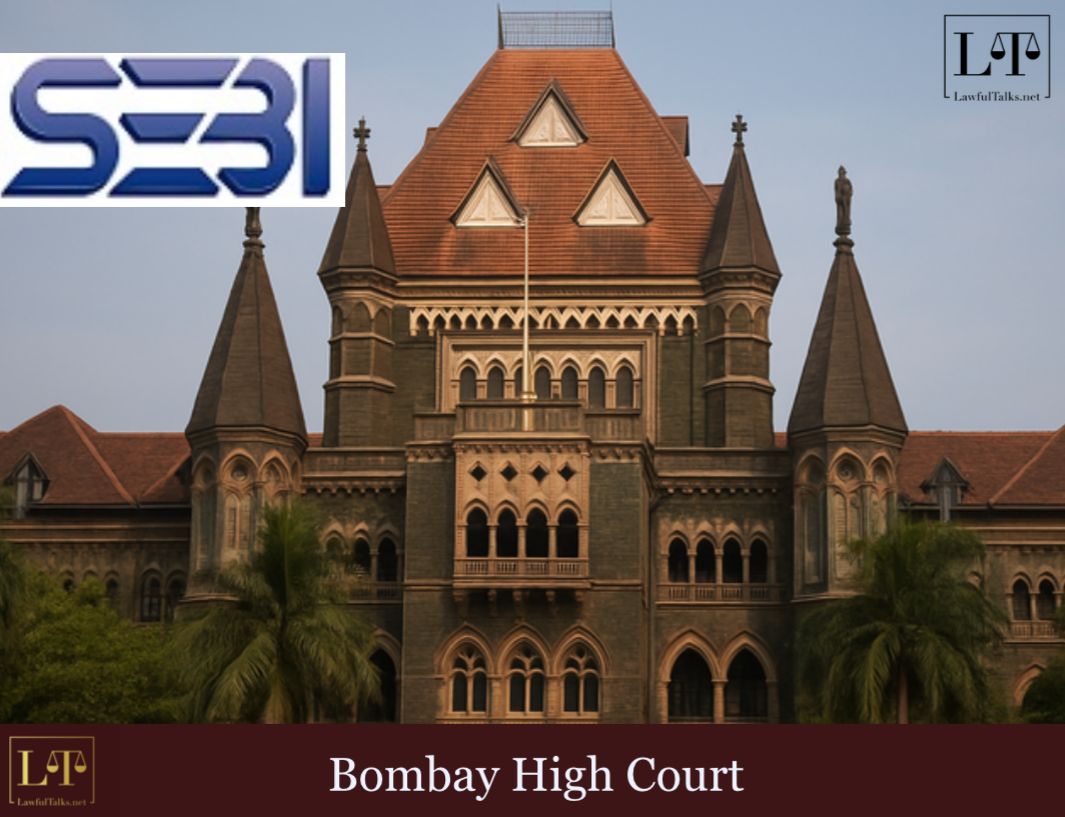Allahabad HC Sets Aside Afzal Ansari's Conviction, Allows Him to Continue as MP

In an important ruling highlighting accountability in financial markets, the Bombay High Court has clarified that settling a case with the Securities and Exchange Board of India (SEBI) does not protect a person from facing criminal charges if the matter involves serious economic offences. This decision was delivered by a Division Bench of Justice A.S. Gadkari and Justice Ranjitsinha Raja Bhonsale.

The Court made it clear that paying disgorgement amounts or settlement fees under SEBI’s consent mechanism cannot be used as a reason to cancel or stop criminal cases filed by the CBI for stock market manipulation.
Background:
The verdict came while dismissing two writ petitions filed by Manoj Gokulchand Seksaria, who sought to quash CBI prosecutions linked to alleged irregularities in the Initial Public Offerings (IPOs) of Yes Bank and IDFC during 2003–2004.
The judges firmly stated, "We are of the firm view that only because money has been paid, an accused cannot be exonerated from the criminal liability. To quash the criminal proceedings, exonerating the Petitioner from the criminal liability, on the ground that monies have been paid to the SEBI, under a consent Order, would be misplaced and set wrong precedent. This cannot and should not be allowed."
Highlighting that economic crimes must be taken seriously, the Bench said these offences are not just private disputes but actions that harm market integrity and public trust.“The facts of the case, the intent, criminality, the nature and gravity of the crime are all aspects which need to be considered. Heinous/serious offences, offences against the society, economic offences against the financial system cannot be quashed even if there is a settlement or a victim has been compensated.”
According to the CBI’s allegations, Seksaria and others created fictitious bank and demat accounts to illegally corner shares meant for small retail investors and later transferred these allotments to themselves, reaping illicit profits with the alleged assistance of certain bank officials.
Seksaria contended that because SEBI—the original complainant—had already concluded proceedings against him through a consent order in 2009, under which he paid over Rs 2.25 crore as disgorgement and settlement charges, the ongoing CBI prosecution should stand quashed.
However, the CBI argued against this, saying that the actions involved serious crimes like conspiracy, forgery, and misuse of the IPO allotment system—offences that harmed market transparency and public trust.
The Court agreed with this stance, clarifying that, “The Consent Order dated 7th December, 2009 and the payments made by the Petitioner thereunder towards disgorgement and/or settlement charges do not in any manner whatsoever affect or impact the present criminal prosecution/proceedings.”
Emphasizing the wider social and economic impact of such actions, the Bench said, “It cannot be that we are swayed away by the fact that a consent Order is passed and amounts are paid to SEBI. We also need to keep in mind the society at large and the impact thereon.” The judges said the actions alleged against Seksaria were deliberate attempts for “personal profit or unjust enrichment regardless of the consequence on society at large.”
In its concluding remarks, the Court warned strongly against letting people accused of economic crimes avoid responsibility by using settlements. It stated, “To quash the proceeding merely because payments are made to SEBI would be nothing short of unwarranted and misplaced sympathy. If the prosecution against the economic offenders are not allowed to continue, the entire community is aggrieved. Quashing the present criminal prosecutions would in fact tantamount to an absolute abuse of process of law.”
Finding no substance in Seksaria’s plea, the Bombay High Court dismissed both petitions.
Case Title: Manoj Gokulchand Seksaria vs The State of Maharashtra
Appearance:
Advocate for Petitioner: Mr. Aabad Ponda, Senior Advocate a/w Mr. Jugal Kanani a/w Mr. Rahul Pandey i/by Mr. Alok Singh
APP for the Respondent No.1 – State: Smt. M. M. Deshmukh, Public Prosecutor a/w Mr. Vinod Chate
Advocate for Respondent No.2 – CBI: Mr. Kuldeep Patil,

Anam Sayyed
4th Year, Law Student
Latest Posts
Categories
- International News 19 Posts
- Supreme Court 390 Posts
- High Courts 383 Posts



















































































































































































































































































































































































































































































































































































































































































































































































































